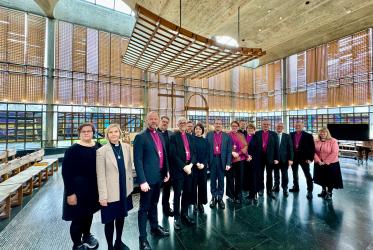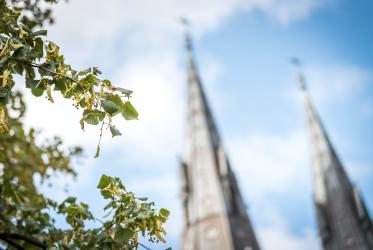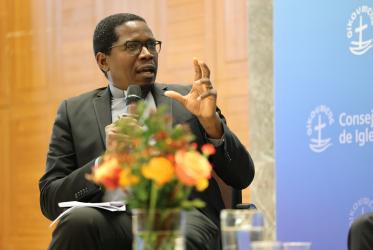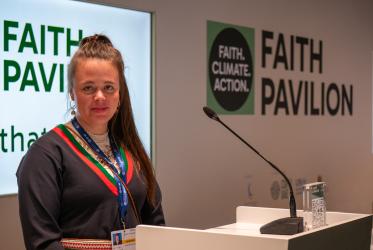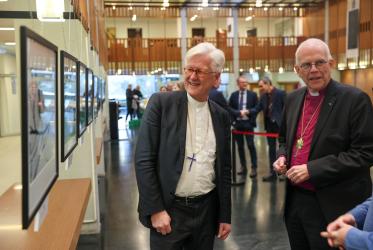In an interfaith dialogue on human dignity and human sexuality organized by the Church of Sweden, a member church of the World Council of Churches (WCC), Archbishop emeritus Rev. Dr Anders Wejryd has stressed the significance of engaging in dialogue on this topic.
“In our meeting we had good conversations. We did not always reach the same conclusion, but we acknowledged each other’s conclusions,” said Wejryd, who serves as the WCC president for Europe, representing the Church of Sweden.
Organized by the Department of International Affairs in the Church of Sweden, the event was held from 3 to 8 February in Uppsala, Sweden. The event included a public panel discussion which took place at the University of Uppsala as part of the Festival of Theology.
Wejryd said that the human rights of sexual minorities around the world are suppressed, and such suppression is often sanctioned by religious communities.
“But there are signs of change,” he said.
Wejryd went on to say that due to strong taboos, sexual minorities often do not know their rights and cannot speak for themselves. And others have not been able to speak for them. “But now we live in a wonderful time when many theologians are going back to the old scriptures, seeking words that speak of the rights of sexual minorities.”
A Jewish rabbi and representative of the global interfaith network for people of all sexual orientation (GIN-SSOGIE) talked about “queer” reading of the Bible. He shared that the text on the creation of the tabernacle could be read as a story of two men, a couple, in the refugee camp, making something beautiful together following God’s instructions.
“I am not saying this is what has happened. I saythis is a poetic way of reading the text, which gives me and other LGBT (lesbian, gay, bisexual, and transgender) persons a possibility to live,” he said.
New perspectives
Dr Riffat Hassan, a Pakistani-American professor of Islam, co-moderated the panel. She said that feminist theologians like her have always read the texts through women’s perspectives, and reading from sexual minorities’ perspectives provides a new dimension.
Hassan concluded the panel reflecting on the values of compassion in Islam. “In the beginning of every Islamic sermon the speaker says: ‘In the name of God the most merciful and gracious, the most compassionate and the dispenser of grace’. Therefore mercy is the core. If something is not merciful, it is not according to Islam,” she said.
Tensions in religious traditions and the possibility for people of all sexual orientations to live freely were acknowledged by Wejryd at the end of the panel discussions.
“There is no consensus on this topic. Neither between religions, nor within the Christian fellowship of the WCC.” Wejryd hoped to inspire Christian leaders to make the journey of dialogue he himself has undertaken.
“I have not always had the same views on this subject. But I have never been afraid to meet people and have dialogue. Not all participants in this dialogue think that homosexuality is within the limits of their tradition, but all of us recognize the need to talk about it,” he said.
Reflections on religious texts related to human sexuality and human dignity were shared at the event. The discussions in Uppsala also featured views from distinguished scholars and theologians representing Jewish, Islamic and Christian faith traditions.
The WCC reference group on human sexuality, established by the WCC’s Executive Committee in July 2014 on recommendation from the WCC 10th Assembly, was represented at the event.
WCC news release produced with report from Hanna Wallsten in Sweden.
Interfaith Dialogue on Human Dignity and Human Sexuality

